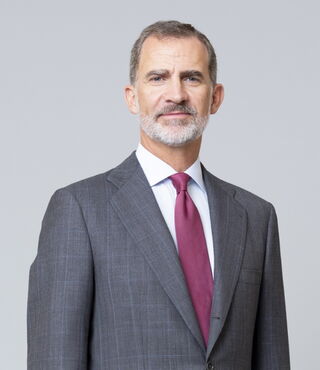
About us
Committees of the Charlemagne Prize
The driving force behind the award

Administration of the award ceremony
Selection of prize winners
Stability and tradition
In 1950, the twelve founders of the Charlemagne Prize established the ‘Society for the Award of the International Charlemagne Prize of the City of Aachen’ (Karlspreisgesellschaft), which was to perform all tasks related to the awarding of the Charlemagne Prize. Its statutes took up and specified the objectives of the Charlemagne Prize as set out in the 1949 proclamation. The society was renamed the ‘Society for the Award of the International Charlemagne Prize of Aachen’ in 1987 and has been registered as an association ever since.
The Board of Directors of the Charlemagne Prize Society plays a prominent role in the Charlemagne Prize, as this body selects the Charlemagne Prize winners. The meetings of the Charlemagne Prize Board of Directors are confidential.
The first Charlemagne Prize Board of Directors was identical to the twelve founders of the prize and the signatories of the proclamation, eight of whom were elected to the Board of Directors.
The Lord Mayor of the City of Aachen, the Chief City Administrator, the Bishop of the Diocese of Aachen as guardian of the Charlemagne tradition of the cathedral, and the Rector of the Technical University were ‘ex officio members’ of the Board of Directors.
The twelve members elected the spokesperson for the Charlemagne Prize Board of Directors from among their ranks. He chaired the meetings of the Board of Directors and represented the society externally.
This basic structure of the Charlemagne Prize Board of Directors has been retained to this day, although the committee has since been expanded up to 19 members and the bishop has been replaced by the cathedral provost as a ‘born member’. Since 1974, the political groups on the city council have sent representatives to the Board of Directors. Since 1990, the city council has also had the right to propose two additional members, known as ‘world citizens’, who are not based in Aachen but have a special connection to Europe. Finally, two representatives of the Charlemagne Prize Foundation have been members of the Board of Directors since its establishment in 1997.
The fact that there have only been five spokespersons/chairpersons of the Charlemagne Prize Board of Directors to date is a testament to the continuity of the Charlemagne Prize.
The Foundation for the International Charlemagne Prize of Aachen was established in December 1997 as a non-profit foundation under private law. Its aim is to promote the Charlemagne Prize both conceptually and materially. The foundation brings together personalities from the worlds of business, politics and society (composition of the foundation's committees) who want to give new impetus to the integration process and appeal to citizens in order to involve them more closely in the discussion of European issues.
The Foundation's work focuses on the political, economic, cultural and social aspects of the European integration process, the promotion and dissemination of the European idea, and the development of a European consciousness among citizens. The foundation sees itself as a link between European and national political decision-makers, business, academia, the media and the citizens of Europe.
The main focus of the Charlemagne Prize Foundation's work lies in
